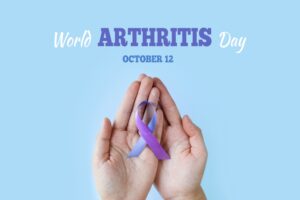Rheumatoid arthritis (RA) is a type of arthritis where your immune system attacks the tissue lining the joints. Although the exact cause is unknown, treatment options are available to minimize and treat RA symptoms. Treatment options often include lifestyle changes, physical therapy, occupational therapy, nutritional therapy, medication, and surgery.
At Pacific Arthritis, we offer a comprehensive range of services for rheumatic diseases and musculoskeletal disorders for patients in the greater Los Angeles area. In addition to disease management, we offer telemedicine, research & clinical studies, infusion therapy, and ultrasound imaging.
This article will share answers to the most frequently asked questions regarding Rheumatoid Arthritis. However, the best first step is a visit to our office where our specialist physicians will provide individual care.
Frequently Asked Questions About Rheumatoid Arthritis
1. What is Rhuematoid Arthritis?
Rheumatoid arthritis is a chronic autoimmune disease. It predominantly affects the small joints on both sides of your body, which makes it different from other types of arthritis. Common symptoms can include pain and inflammation in your:
- Fingers
- Hands
- Wrists
- Knees
- Ankles
- Feet
- Toes
Uncontrolled inflammation damages cartilage, which normally acts as a “shock absorber” in your joints. In time, this can deform your joints. Eventually, your bone itself erodes. This can lead to the fusion of your joint (an effort of your body to protect itself from constant irritation).
Specific cells in your immune system (your body’s infection-fighting system) aid this process. These substances are produced in your joints but also circulate and cause symptoms throughout your body. In addition to affecting your joints, rheumatoid arthritis sometimes affects other parts of your body, including your:
- Lungs
- Heart
- Skin
- Eyes
- Mouth
What causes rheumatoid arthritis?
The precise cause of rheumatoid arthritis is not known. It is thought to be the result of a combination of genetics, hormones, and environmental factors. Normally, your immune system defends your body from illness. In the case of rheumatoid arthritis, something causes your immune system to attack your joints. An infection, smoking, or emotional or physical stress may trigger the attacks.
Who gets rheumatoid arthritis?
Rheumatoid Arthritis affects 1.3 million people in the United States, being 2.5 times more common in people who were designated female at birth than in people designated male at birth. It usually begins to develop between the ages of 30 and 60, but anyone can develop it.
What are rheumatoid arthritis flare symptoms?
The symptoms of a rheumatoid arthritis flare are similar to those of rheumatoid arthritis. People with RA can experience periods of improvement followed by flares, which are times when their symptoms worsen. With the right treatment, people with RA can manage their symptoms and enjoy long periods of relief. Flares can be triggered by stress, changes in weather, certain foods, changes in medication, trauma, or infections.
You may not be able to stop flare-ups altogether, but there are steps you can take to help manage them. Keeping a daily journal of your symptoms and the events of your life could be helpful. Show this journal to your rheumatologist, who may be able to identify certain triggers. You can then work together to manage those triggers.
How is rheumatoid arthritis treated?
The primary objective of treating rheumatoid arthritis is to reduce any soreness and swelling in the joints. This should help keep or improve joint mobility. The long-term goal of treatment is to either slow or stop any further damage to the joints. Controlling joint inflammation will help reduce pain and improve daily living.
Joint damage generally occurs within the first two years of diagnosis, so it’s important to see your provider if you notice RA symptoms. Treating RA as early as possible can help reduce long-term consequences.
Treatments for rheumatoid arthritis include lifestyle changes, therapies, medicine and surgery. Your treatment plan will depend on your age, health, medical history, and how bad your symptoms are when deciding on a treatment.
If you have been diagnosed with rheumatoid arthritis, you may feel like you are constantly dealing with pain and fatigue. It is important to communicate these feelings and your symptoms to your healthcare provider. Along with X-rays and blood tests, the information you provide regarding your quality of life will be used to determine the most suitable treatment plan. Our team will evaluate your symptoms and provide you with the best treatment option to suit your needs. With proper management, people living with rheumatoid arthritis can live and enjoy their lives with minimal restrictions. Call (310) 297-9221 or visit our Los Angeles office to start your journey to RA relief.







